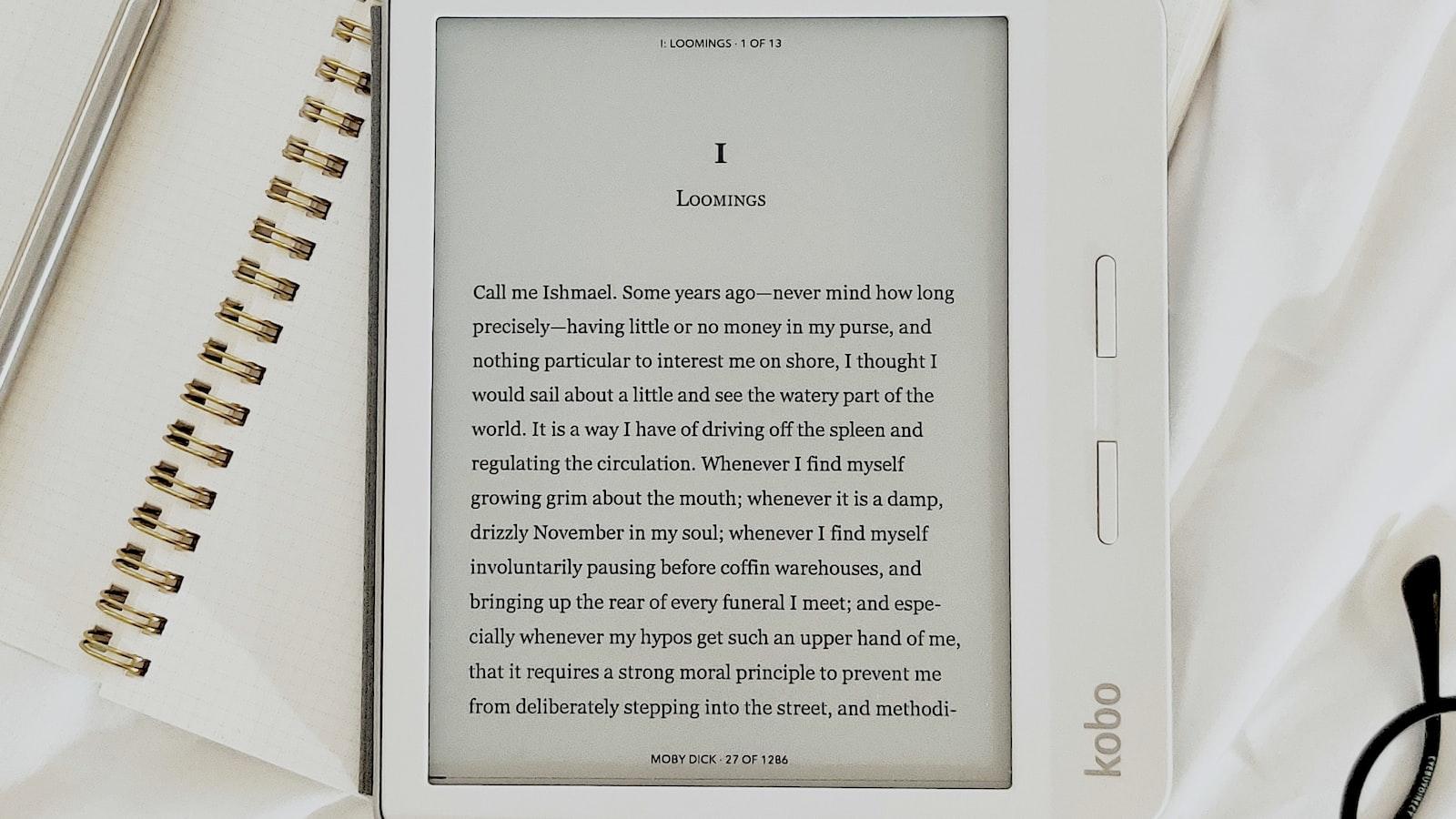Step into the digital realm of literature, where the pages of a book transform into a symphony of pixels, beckoning us with promises of convenience and endless possibilities. As the world evolves, so too does our approach to reading, with e-book readers emerging as formidable contenders in the battle between traditional libraries and their virtual counterparts. Expanding libraries from physical shelves to intangible spaces, these portable devices have revolutionized the way we consume literature. However, like any innovation, they come with their own set of pros and cons, offering a tantalizing duality that demands exploration. In this article, we embark on a journey to unravel the mysteries of embracing a digital library, shedding light on the merits and drawbacks of e-book readers, while navigating through the vast landscape of this literary revolution.
<img class=”kimage_class” src=”http://homeland-life.com/wp-content/uploads/2023/12/photo-1445311429009-0b7e0cff714a.jpg” alt=”The Digital Revolution: Exploring the Advantages and Drawbacks of E-book Readers””>
The Digital Revolution: Exploring the Advantages and Drawbacks of E-book Readers”
With the rapid advancement of technology, the traditional method of reading books has been transformed forever by the emergence of e-book readers. These portable devices offer a plethora of advantages that have captured the attention of avid readers all around the world. The primary benefit of e-book readers is their convenience and portability, enabling users to carry an entire library of books in a single compact device. Another advantage lies in their versatility, as e-book readers often come with customizable settings that allow readers to personalize their reading experience – adjusting the font size, brightness, and background color to suit their preferences. Moreover, e-books are readily accessible, with a vast range of titles available at the touch of a button, eliminating the need to wait for shipping or visit a physical bookstore. On the flip side, however, while e-book readers provide a myriad of benefits, they also present some drawbacks. One of the main concerns is the potential strain on the eyes caused by prolonged screen time. Additionally, the tactile experience of holding a physical book and flipping through its pages may be lost with e-book readers. Furthermore, some readers find it challenging to focus on reading for extended periods when faced with the distractions that come hand in hand with digital devices, such as social media notifications. Regardless, e-book readers have unquestionably revolutionized the way we consume literature and have opened doors to a world of possibilities in the digital age.

“Guidance on Embracing a Digital Library: Weighing the Benefits and Limitations of E-book Readers
Section 1: Weighing the Benefits and Limitations of E-book Readers
E-book readers have revolutionized the way we consume literature, offering a plethora of advantages as well as a few limitations to consider. The digital nature of e-books allows for convenience and accessibility, offering an extensive library at our fingertips. With a single device, readers can carry thousands of titles, making it perfect for frequent travelers or individuals who simply appreciate the convenience of accessing their favorite books on the go. E-book readers are also environmentally friendly, reducing the need for paper production and storage. Additionally, the adjustable font size and backlighting options make reading comfortable for those with visual impairments or in low light environments. However, it is important to acknowledge the limitations of e-book readers, such as compatibility issues with certain file formats and digital rights management restrictions imposed by publishers. Despite these limitations, the benefits of embracing a digital library through e-book readers outweigh the drawbacks, making it a worthwhile investment for avid readers and technology enthusiasts alike. As the final pages of this exploration of E-book Readers unfold, we find ourselves at a crossroads of innovation and tradition. The undeniable allure of a digital library has captivated the hearts and minds of many, whispering promises of convenience, mobility, and a weightless world of literary treasures. Yet, like any enchanted tale, there are two sides to this tale that should not be ignored.
On one hand, the digital era has revolutionized the way we access and consume literature. Gone are the days of behemoth bookshelves and the weight of paperbacks in our hands. E-book readers have emerged as a beacon of progress, transforming entire collections into the ethereal realm of electricity and pixels. A portable library resides at our fingertips, willing to accompany us on any journey or late-night escapade. The convenience is undeniable; the allure, irresistible.
However, let us not forget the mellifluous sound of crisp pages turning, the musky scent of ink and paper that fills our senses. The nostalgic connection we share with physical books is not easily severed. There is an intangible magic in flipping through well-worn pages, in the tactile dance between reader and literature. A reader’s personal library becomes an extension of their identity, a testament to their taste and intellectual endeavors.
To embrace the E-book Reader is to embark on a thrilling journey towards the future, electrified with possibility. In its embrace, we uncover a world of convenience, a dazzling array of literary wonders that fit into our pockets. The digital library heralds a new era, one that values accessibility and portability, transforming the way we engage with the written word.
Yet, as enchanting as this transformation may be, it is essential to acknowledge the merits of the past. We must remember the tomes that line our shelves, the dog-eared pages that whisper our favorite tales. The charm of a physical library is steeped in history and tradition, reminding us that not all progress lies in the abandonment of the old.
Ultimately, the choice lies within you, dear reader. Whether you embrace the digital revolution or remain a steadfast guardian of the printed word, both realms offer their own unique enchantment. With each page turned, with each word devoured, you shape your own literary narrative. So, choose wisely, for in this decision, you define the chapter of your own reading adventure.


